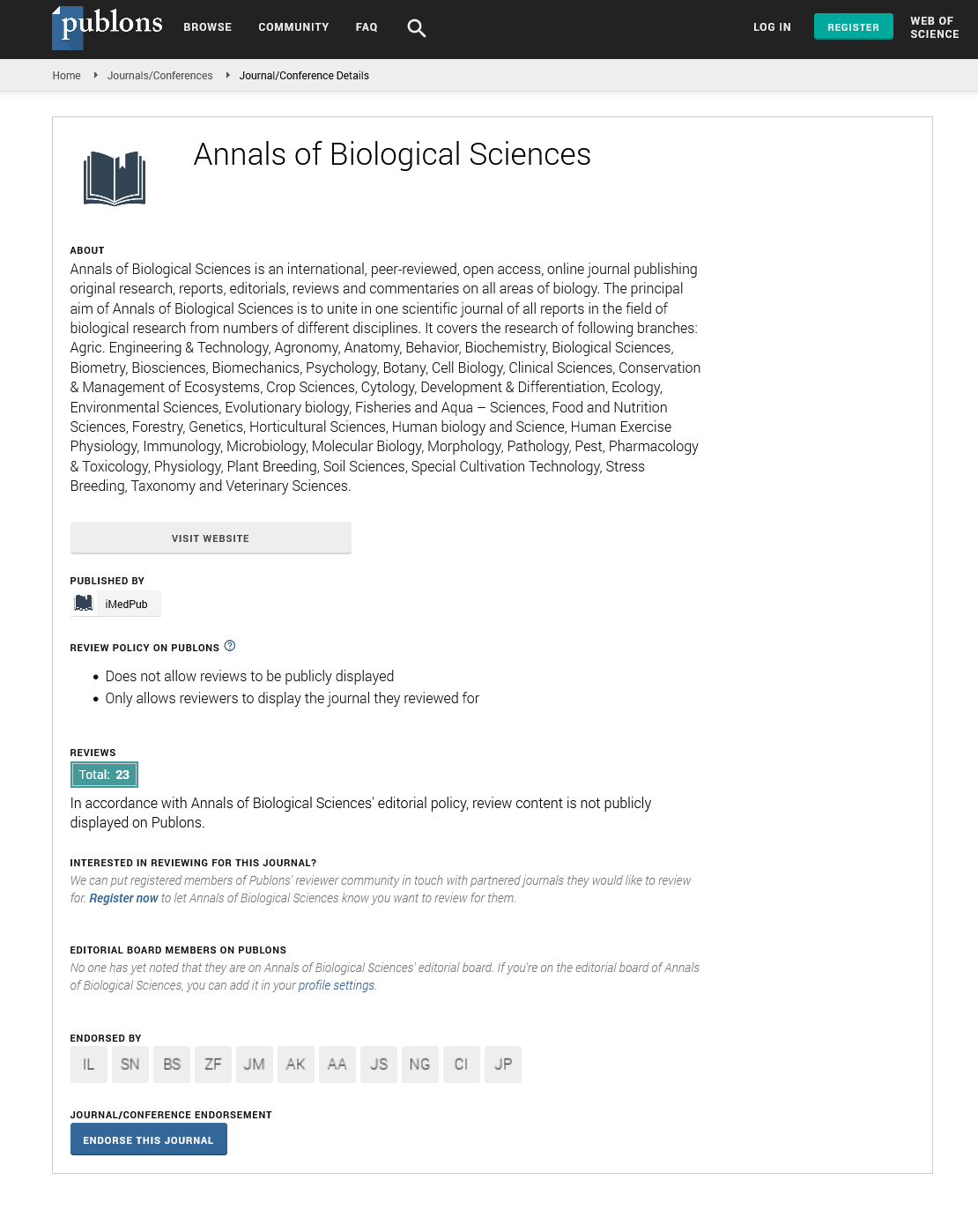ISSN : 2348-1927
Annals of Biological Sciences
Organic electronic devices : cellulosic nanocomposites
ANNUAL BIOTECHNOLOGY CONGRESS
August 17-18, 2017 | Toronto, Canada
Mohini M Sain
University of Toronto, Canada
Keynote: Ann Biol Sci
DOI: 10.21767/2348-1927-C1-001
Abstract
Organic electronics gained significant interest at a time when neural-network or artificial intelligence become a main-stream technology after more than 25 years of nascent stage. Transportation industry is an early adaptor of the technology. When next generation vehichle systems, including autonomous vehicle need a significantly precise control of the sensing mechanism, the success of the technology will also depend on how precisely such device can predict human behaviour. As a result, a significant amount of research has been underway on neural-network system to more accurately predict human behavior in a sensor dominated world, with a precise control of predictability behavior over the service life of new vehicle systems. This presentation will highlight the design, construction and validation of flexible elelctronic devices from laboratory scale to pilot scale and present early stage data on relations between the unit process and intrinsic uncertainty to predict human behaviour with confidence. To address these issues an artificial intelligent system seems to be a very good option. Artificial neural networks (ANNs) are a family of models inspired by biological neural networks (brain). On the bright side, we only need approximate formulation, we can show the program some examples of input and output, and let the program find out how to provide output from the input. The ANN has its own drawbacks. Although ANN is used for LCA, all the aspect of the LCA is fuzzy in nature.
Biography
Mohini Sain has completed his PhD in 1989 and worked in industry as Consultant before he became an Academic. He is the Professor/Director of Centre for Biocomposites and Biomaterials Processing, University of Toronto, a premier advanced biomaterials research organization. He has published more than 400 papers in reputed journals, spinned off several companies for his research inventions and holds more than 40 patents and patent applications. He is the Author and Editor of seven books.
Google Scholar citation report
Citations : 406
Annals of Biological Sciences received 406 citations as per Google Scholar report
Annals of Biological Sciences peer review process verified at publons
Abstracted/Indexed in
- Google Scholar
- China National Knowledge Infrastructure (CNKI)
- WorldCat
- Publons
- ROAD
- Secret Search Engine Labs
Open Access Journals
- Aquaculture & Veterinary Science
- Chemistry & Chemical Sciences
- Clinical Sciences
- Engineering
- General Science
- Genetics & Molecular Biology
- Health Care & Nursing
- Immunology & Microbiology
- Materials Science
- Mathematics & Physics
- Medical Sciences
- Neurology & Psychiatry
- Oncology & Cancer Science
- Pharmaceutical Sciences
